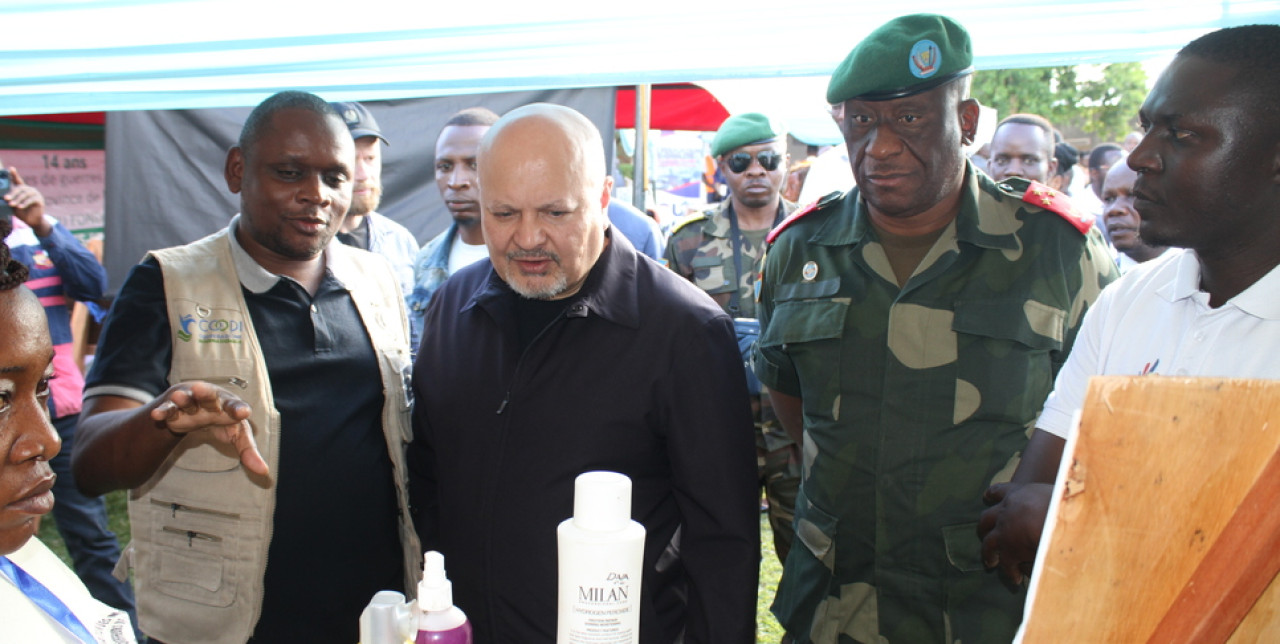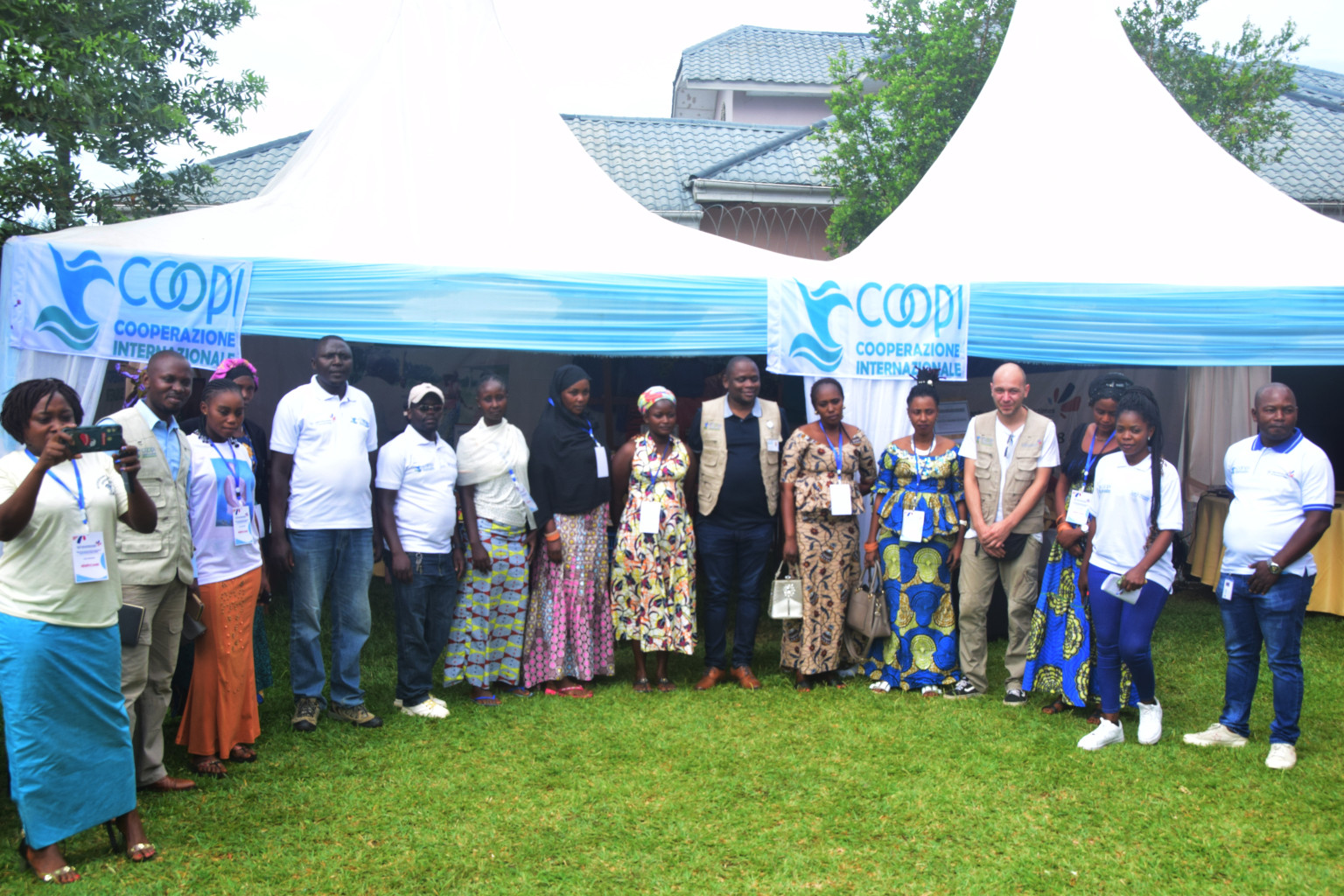23-06-2023 | di COOPI
DRC. International Criminal Court meets with war victims
On May 30, 2023, the Chief Prosecutor of the International Criminal Court, Karim Khan, arrived in Bunia, in the province of Ituri, in the northeast of the Democratic Republic of Congo, for a series of institutional meetings with various political authorities. He is one of the key decision-makers among the donors of the Victims' Trust Fund (VTF), which in turn finances various projects in eastern DRC. In record time, the ICC prosecutor was able to visit evidence of the achievements of partners financed by the Victims' Benefit Fund, of which COOPI - Cooperazione Internazionale is a member, in Bunia, Ituri province. As can be seen in the cover photo, the COOPI DRC head of mission is showing and explaining to the ICC prosecutor the various achievements of beneficiaries financed by the FPV in the stand set up by COOPI on the occasion of the said visit.
Since 2020, COOPI, in collaboration with its various partners, has been implementing projects financed by the Victims' Benefit Fund, notably the Psychosocial Reintegration of girl mothers and collective reparations for war victims, Thomas Lubanga and Bosco Ntaganda. The overall aim of these projects is to provide integrated, cross-cutting and multi-sectoral care services to meet the needs of victims and their families, so that they can lead a dignified life and participate in reconciliation and peace-building within their communities.
It was in this context that the ICC prosecutor was able to visit the achievements of these two projects, whose visit was guided and facilitated by the COOPI DRC Head of Mission, Clément KUMBIZI, at a COOPI stand. The purpose of the visit was to present the Income Generating Activities (IGA) developed by the victims in a brief and designed manner, which have been carried out by COOPI under the financing of the Victims' Benefit Fund (VBF). It should be noted that the prosecutor's attention was focused on the testimonies of the victims of the COOPI-VBF "filles-mères" project, including the testimonies of a mother and a daughter, both victims of sexual violence who became mothers as a result of the atrocities. Secondly, for the COOPI-VBF "reparations" project, the testimonies took place in a protected environment in order to preserve the identity of the victims for reasons of protection, confidentiality and sensitivity.




 Dem. Rep. of Congo
Dem. Rep. of Congo
